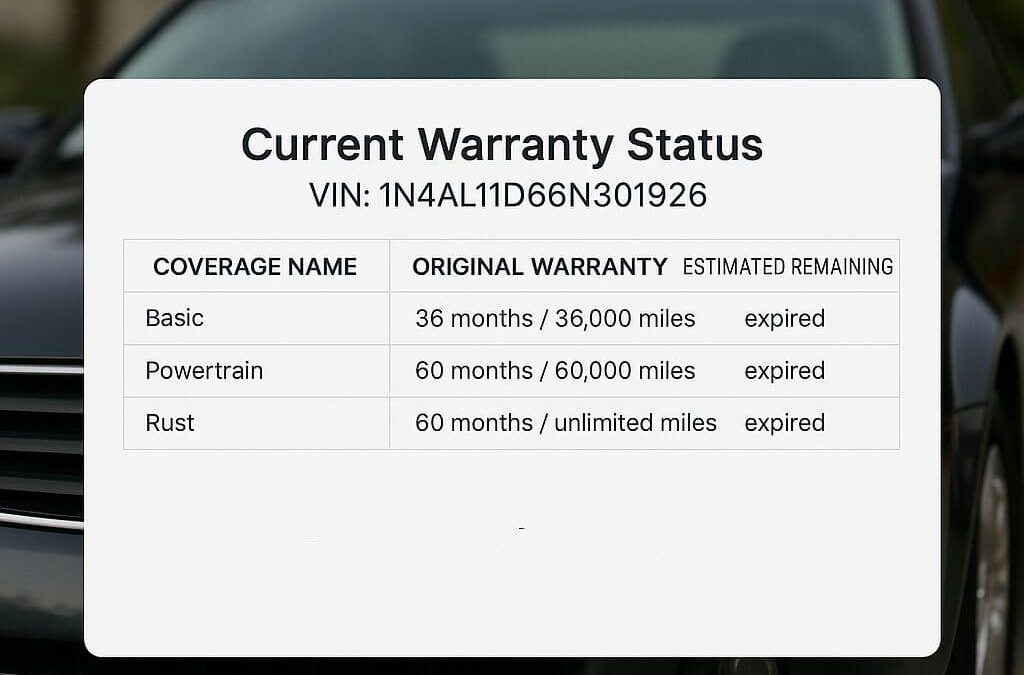1️⃣ Introduction
Buying a used car is a major investment, and checking its history is a crucial step in ensuring you’re making a smart purchase. A vehicle history report provides essential details about a car’s past, including accidents, title status, liens, and odometer readings. However, many buyers make mistakes when reviewing these reports, which can lead to costly issues down the road.
In this guide, we’ll highlight the most common mistakes people make when checking a free vehicle history report and provide tips on how to avoid them. We’ll also introduce you to VinCheckPro, a top-rated free vehicle history report provider.
2️⃣ Common Mistakes When Checking a Vehicle History Report
1. Using Unreliable Sources
Not all vehicle history reports are created equal. Some free services provide incomplete or outdated data, which can lead to poor decision-making.
✅ Always use reputable sources like VinCheckPro.
✅ Compare multiple reports to get a full picture.
🚨 Why it’s a mistake?
- Unverified reports may miss critical details such as major accidents or title brands.
- Fraudulent sellers may provide fake reports to hide a vehicle’s issues.
2. Not Checking for Title Brands
A vehicle’s title status is one of the most important details in a history report.
✅ Look for salvage, rebuilt, junk, or flood damage titles.
✅ Check if the vehicle was ever declared a total loss by an insurance company.
🚨 Why it’s a mistake?
- Buying a car with a salvage or rebuilt title can significantly lower its resale value.
- Some states allow title washing, where branded titles are removed when a vehicle is registered in a new state.
3. Ignoring Lien or Loan Records
A lien means that a vehicle is tied to an outstanding loan, and the lender has a legal claim to it.
✅ Ensure the vehicle is free of any outstanding loans before purchasing.
✅ Check the lienholder’s details if a lien is present.
🚨 Why it’s a mistake?
- If you buy a car with an active lien, you may be responsible for the previous owner’s debt.
- The lender may repossess the vehicle if the lien isn’t cleared.
4. Skipping the Odometer Check
Odometer fraud is a serious issue in the used car market.
✅ Verify mileage consistency with past records.
✅ Watch out for drastic drops in mileage between records.
🚨 Why it’s a mistake?
- A rolled-back odometer can make a high-mileage car appear newer than it is.
- Vehicles with altered mileage may have more wear and tear than expected.
5. Overlooking Accident and Repair History
Even minor accidents can lead to expensive repairs in the future.
✅ Check if the car has been involved in multiple accidents.
✅ Review repair history to ensure quality fixes.
🚨 Why it’s a mistake?
- Vehicles with frame damage or multiple repairs may have hidden structural issues.
- Some sellers fail to disclose past repairs that could impact safety.
6. Not Checking for Open Recalls
Recalls indicate manufacturer defects that may need repairs.
✅ Look for unresolved safety recalls.
✅ Contact the manufacturer to see if repairs were completed.
🚨 Why it’s a mistake?
- Some recall-related defects can lead to safety hazards.
- A vehicle with unresolved recalls may not be eligible for repairs if the recall window has closed.
7. Ignoring Theft and Stolen Vehicle Records
Buying a stolen car can lead to serious legal consequences.
✅ Ensure the car hasn’t been reported stolen.
✅ Check for inconsistencies in VIN records.
🚨 Why it’s a mistake?
- Law enforcement can seize stolen vehicles, leaving the buyer with nothing.
- Some criminals alter VIN numbers to disguise stolen cars.
3️⃣ How to Properly Check a Free Vehicle History Report
Step-by-Step Guide:
1️⃣ Find the VIN – The Vehicle Identification Number (VIN) is usually found on the dashboard, driver’s side door frame, or vehicle documents.
2️⃣ Use a trusted source – Enter the VIN into a free vehicle history report tool like VinCheckPro.
3️⃣ Review all sections of the report – Look for title brands, accidents, liens, and recalls.
4️⃣ Compare with other sources – Cross-check with state DMV records and NMVTIS databases.
5️⃣ Get a professional inspection – Even if the report looks good, a mechanic can confirm the vehicle’s condition.
✅ “Before purchasing, run a VIN check to ensure the car is free from hidden issues.”
4️⃣ Final Tips for Used Car Buyers
💡 Start with a free vehicle history report. It provides essential details without any cost.
💡 Compare multiple reports. Different sources may have varying records.
💡 Use a paid report for high-value cars. More expensive vehicles deserve detailed history checks.
💡 Get a pre-purchase inspection. A professional mechanic can identify hidden issues.
💡 Check the VIN on multiple platforms. Some tools provide more details than others.
💡 Look for warning signs. Unusual mileage changes, title discrepancies, and missing records should raise concerns.
5️⃣ Conclusion & Call to Action
Avoiding these common mistakes can help you make an informed decision when purchasing a used car. A vehicle history report is one of the best tools available to protect yourself from buying a problematic vehicle.
For the best free vehicle history report, VinCheckPro provides comprehensive data at no cost, making it a great alternative to paid reports.
🚗 Final Tip: Before buying a used car, get a Vehicle History Report Free from VinCheckPro to uncover hidden issues and make an informed purchase!


